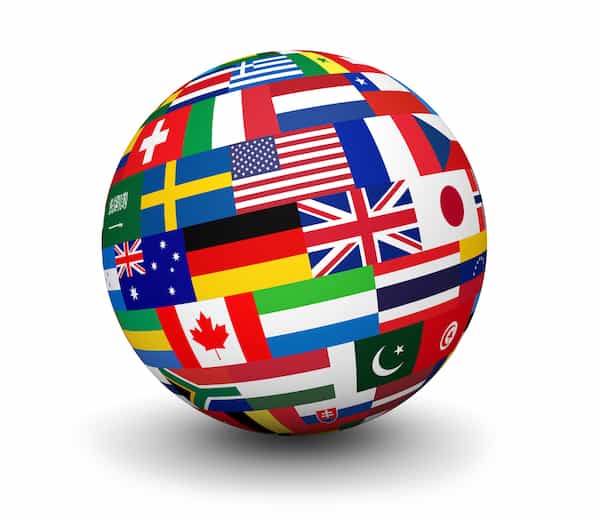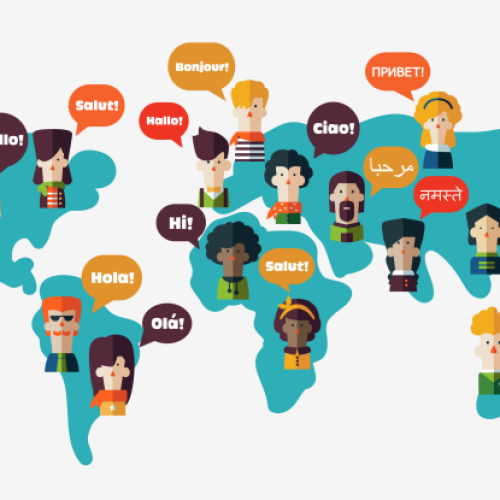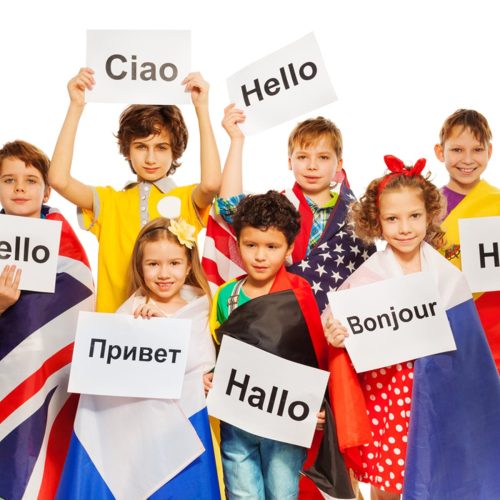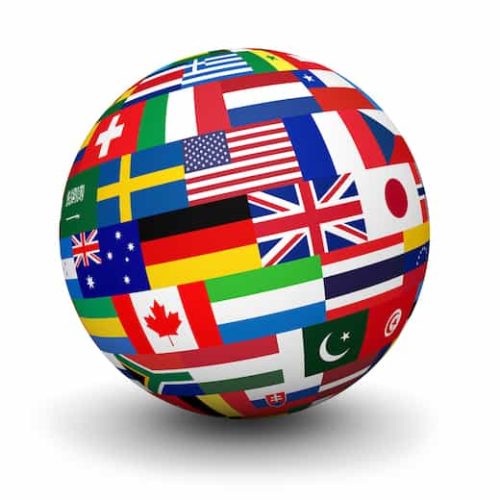In the global world we live in, knowing one language is no more enough. Fluency in different languages enables one to benefit from many opportunities. Through language we can connect with other people and make sense of our experiences. It is also important to note that employers and universities look at applicants who have the necessary requirements of which knowledge of a particular language could be one of them.
We have a team of experienced language teachers who will help you learn a new language of your choice within a very short time. We offer languages like; English, German, French , Chinese, Swahili and Luganda
A language is a systematic means of communication by the use of sounds or conventional symbols. It is the code we all use to express ourselves and communicate to others. It is a communication by word of mouth. Language, so far as we know, is something specific to humans, that is to say it is the basic capacity that distinguishes humans from all other living beings. Language therefore remains potentially a communicative medium capable of expressing ideas and concepts as well as moods, feelings and attitudes.
A set of linguists who based their assumptions of language on psychology made claims that language is nothing but ‘habit formation’. According to them, language is learnt through use, through practice. In their view, ‘the more one is exposed to the use of language, the better one learns’.


Our classes are flexible and conducted by very experienced tutors. We can also arrange Fast Track sessions.
English language comes to our aid in commercial transactions throughout the globe. English is the language of the latest business management in the world. English is a means not only for international commerce; it has become increasingly essential for inter-state commerce and communication in many countries.
English language is one tool to establish our viewpoint. We can learn from others experience. We can check the theories of foreigners against our experience. We can reject the untenable and accept the tenable. We can also propagate our theories among the international audience and readers.
When William Caxton set up his printing press in London (1477) the new hybrid language (vernacular English mixed with courtly French and scholarly Latin) became increasingly standardized, and by 1611, when the Authorized (King James) Version of the Bible was published, the educated English of London had become the core of what is now called Standard English. By the time of Johnson’s dictionary (1755) and the American Declaration of Independence (1776), English was international and recognizable as the language we use today. The Orthography of English was more or less established by 1650 and, in England in particular, a form of standard educated speech, known as Received Pronunciation (RP) spread from the major public schools in the 19th century. This accent was adopted in the early 20th century by the British Broadcasting Corporation (BBC) for its announcers and readers, and is variously known as RP, BBC English, Oxford English, and the King’s or Queen’s English.
Generally, Standard English today does not depend on accent but rather on shared educational experience, mainly of the printed language. Present-day English is an immensely varied language, having absorbed material from many other tongues. It is spoken by more than 300 million native speakers, and between 400 and 800 million foreign users. It is the official language of air transport and shipping; the leading language of science, technology, computers, and commerce; and a major medium of education, publishing, and international negotiation. For this reason, scholars frequently refer to its latest phase as World English.
Why learn German?
In an increasingly globalized world, knowledge of German gives one access to the culture and marketplace of three leading European nations: Switzerland, Austria, and Germany. Together, the inhabitants of these three countries, combined with native speakers in other regions of the globe, make German the most spoken language in the European Union and the tenth most spoken language in the world.
On a professional level, speaking and understanding another language opens many career opportunities. German is one of the main languages used in business and international diplomacy. After the fall of the Soviet Union, German became the lingua franca of central Europe, bridging the gap between former Cold War adversaries. Many international conferences and trade shows also use German as their working language.
At the undergraduate level, taking German classes will help to expand your understanding of another culture through a wide range of course offerings. In business and social settings, being able to interact in a culturally appropriate manner is essential in order to seal a deal or make a transaction. Understanding a bit of history and culture helps to make travel more enriching.
Here are some things to think about:
Why learn French?
French is one of the leading languages of Europe and the world. Because French is an official language of many of the world’s organizations such as the Untied Nations, Nato, UNESCO, the International Red Cross Association, and numerous other international committees and organizations. After English, French is the most learned second language in Europe and around the globe.
French is a great step towards building a world-class education that can open many doors in employment in a variety of occupations such as Teaching, Interpreting and translation, the travel industry, and many more. French is spoken on five different continents, making French one of the most useful second language for traveling. France is the second largest tourist location in the world that attracts over seventy million visitors a year alone. Other major destinations that speak French include the Caribbean, Europe, Canada, and parts of Africa and Asia.
French is the language of culture opening your door to art, music, dance, fashion, cuisine, and cinema. As you quickly realize when you look at the foreign film section of your local video store, France is one of the most prolific producers of international films. The Cannes International Film Festival annually attracts the attention of the world when the best films, directors and actors are named. When you understand French you don’t need to rely on subtitles to enjoy a French film.
If you follow French literature then you have heard of such wonderful French novels like Les Miserables, The Three Musketeers, 20,000 Leagues under the Sea, The Little Prince, and The Stranger. In fact, France has won more Nobel Prizes for literature than any other country. The French are also admired for their great philosophers, such as Descartes and Pascal, Rousseau, Voltaire, Camus and Satre. When you learn French, you can enjoy these works and authors in the original form.
The importance of French language extends into France’s military power. France is the third most robust military in the world after the United States and Russia. France is second in the building defense systems such as exocet missiles, radar technology, as well as being the second largest exporter of civilian and military aircraft and helicopters. France has troops presence in over 15 countries worldwide. France also boasts one of the most advanced telecommunication systems
France has also led the way in major advancements in science and technology. France was the place where the very first nuclear fusion reactor was developed and manufactured. Advances in high energy physics and research in the medical field such as isolating the HIV from the AIDS virus, the crucial first step in a cure for the virus has led to French being adopted has a necessary language of the scientific community. The importance of French has regional and global implications on all major economies of the world.
Learning any language is an ongoing process and don’t expect results over night or without any effort. Many resources are readily available to lessen the effort and time it takes to learn French. Believe it or not but over 40 to 50% of English vocabulary comes from the French Language. In fact, French has the most words spread out over many different languages. Learning the importance of French can even help you understand your own language better! French is also a good language to learn if you plan to learn other romance languages like Spanish, Italian, Portuguese, and Romanian.
All languages change over time and French is no exception. To indisputably understand the importance of French language you need to learn the language yourself so you can receive the full benefit of this amazing language. In fact, latest research as shown that learning a second language helps fight against Alzheimer’s disease and slows down the aging effects of the brain!
Why learn Chinese?
![]()
The study of the Chinese language opens the way to different important fields such as Chinese politics, economy, history or archaeology. But to study Chinese finally means to study a culture and people. At the heart of Chinese civilization is its rich heritage of novels, short stories, poetry, drama, and more recently, film. To be at ease and effective in a Chinese environment learning the language is half the battle, but knowing about the culture behind the language is the other.
Chinese has a relatively uncomplicated grammar. Unlike French, German or English, Chinese has no verb conjugation (no need to memorize verb tenses!) and no noun declension (e.g., gender and number distinctions). For example, while someone learning English has to learn different verb forms like “see/saw/seen,” all you need to do in Chinese is just to remember one word: kan. While in English you have to distinguish between “cat” and “cats,” in Chinese there is only one form: mao. (Chinese conveys these distinctions of tense and number in other ways, of course.)
The basic word order of Chinese is subject — verb — object, exactly as in English. A large number of the key terms of Mandarin Chinese (such as the terms for state, health, science, party, inflation, and even literature) have been formed as translations of English concepts. You are entering a different culture, but the content of many of the modern key concepts is familiar.
Remember these two facts:
The study of Chinese literature and culture will help you bridge the cultural gap, better understand your Chinese counterparts, and create a platform of knowledge and understanding with them that is crucial for effective communication.
Why learn Luganda?
Luganda, the native language of the people of Buganda, developed over the centuries as a spoken language. Its written form is only as recent as the arrival of the Arab and European influence among the Baganda. It is not easy, and of course it is not within the scope of this discussion, to trace its origins, but it is proper to assume that in a dynamic society with such well structured cultural, social, and political institutions like those of the Baganda, the language must have experienced a reciprocal influence during most of the changes the society went through over the course of its history. It was not however, until after the second half of the nineteenth century, that Luganda was first written down and appeared in print in its own right.
Course Description
The primary role of Luganda language training is to provide students with the principal tools needed for entry into Uganda’s many cultures and language communities. Given its location in Kampala, where Luganda dominates, the Development Studies program focuses on Luganda as the primary local lingua franca to best facilitate interactions and cross-cultural communication. The course is organized by a language coordinator and a taught by staff of teachers, themselves native speakers experienced in teaching Luganda as a foreign language and with an emphasis on cross-cultural communication. Language learning consists of 45 hours of formal instruction. Luganda study is reinforced through the home-stay experience and various participatory and interactive assignments. The language instruction may also include simulations and field trips to supplement classroom learning.
Course Objectives
The language course in Luganda consists of 45 academic hours (3 credits) and has the
following main objectives:
Learning Outcomes
Upon completion of the course, students will be able to:
tasks and interactions with others (culturally appropriate greetings, introductions, market
interactions, relating everyday experiences, asking directions, etc.);




Sign up to receive updates, promotions, and sneak peaks of upcoming products. Plus 20% off your next order.
Sign up to receive updates, promotions, and sneak peaks of upcoming products. Plus 20% off your next order.